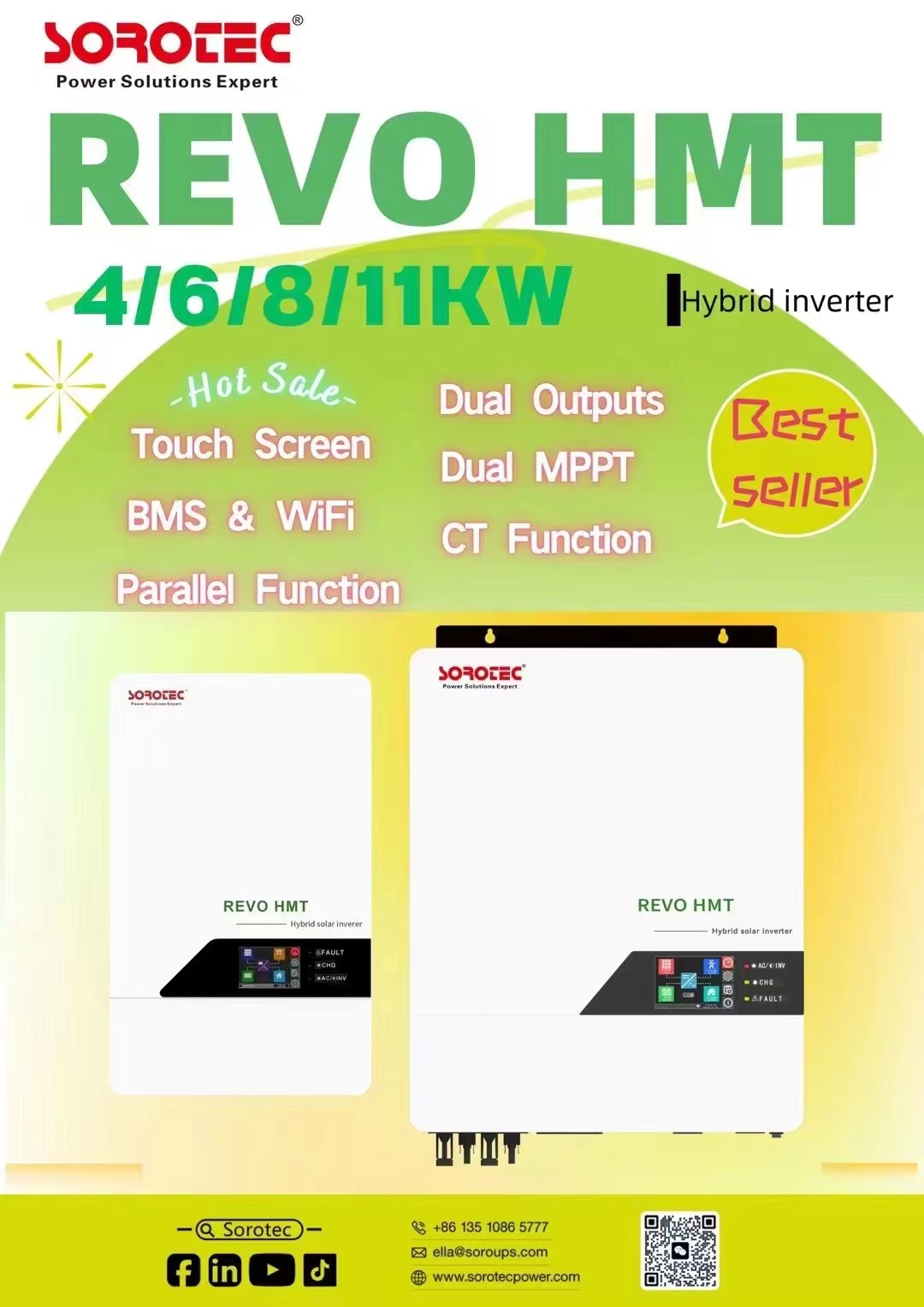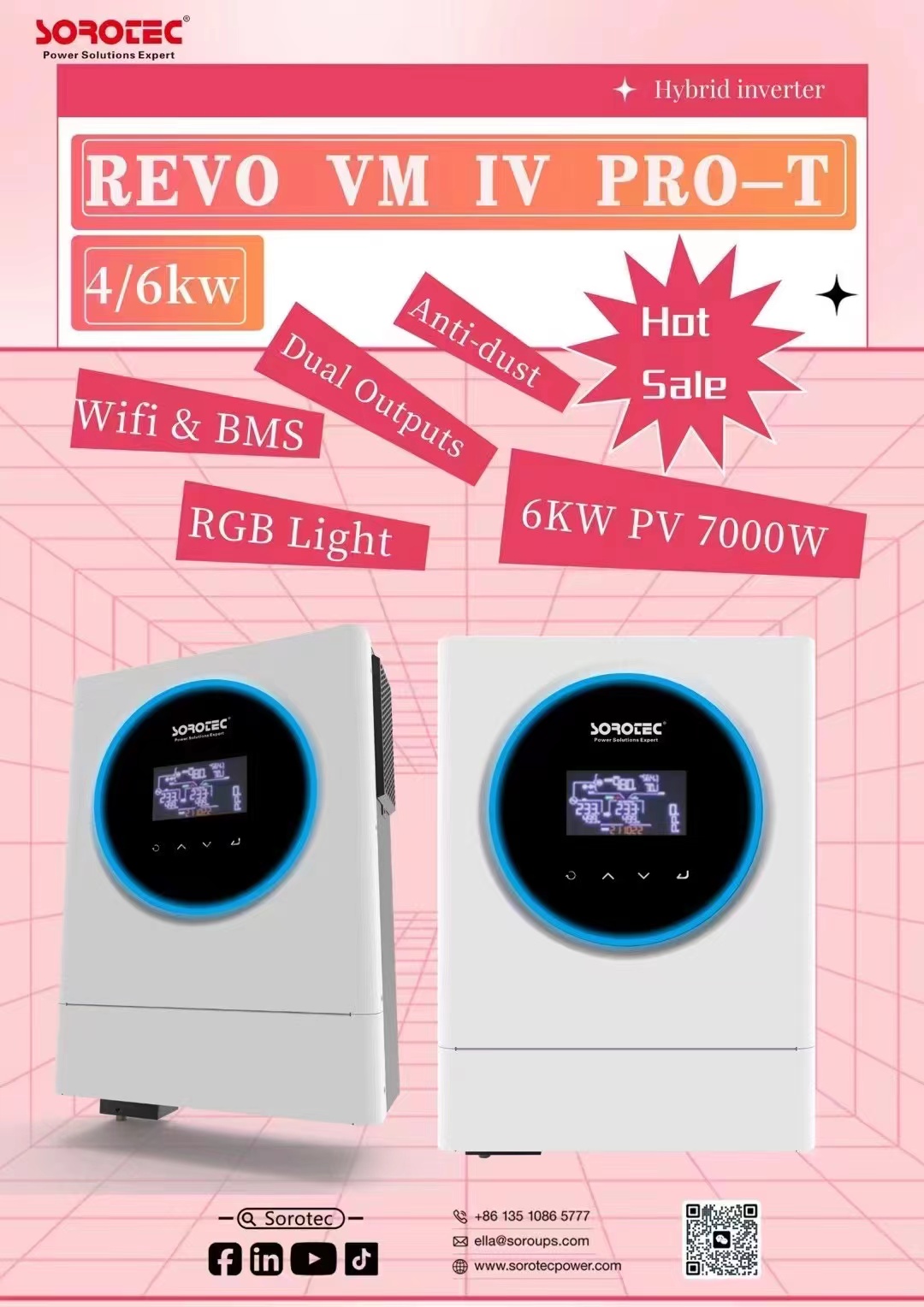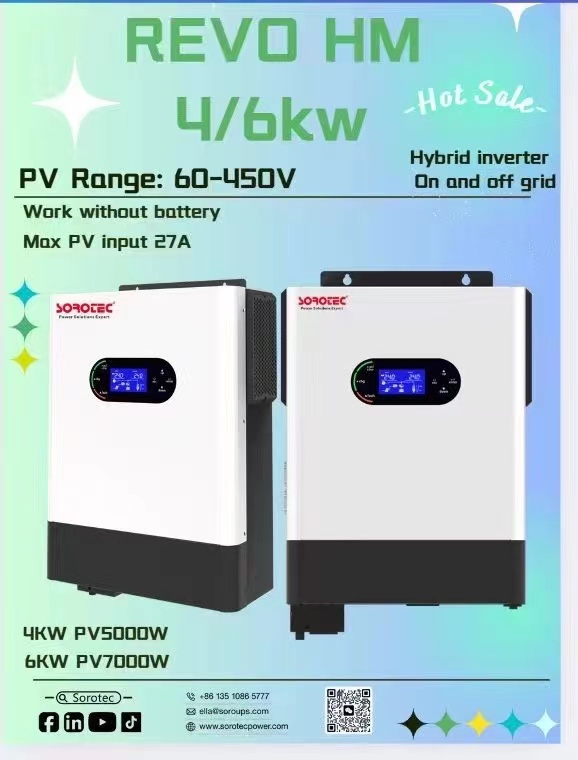As global attention increasingly shifts to renewable energy, solar power has become the preferred energy solution for many households and businesses. As a core component of a solar system, the quality of inverter installation directly affects the system’s efficiency and safety. To ensure the stable operation of a solar system, it is crucial to select the appropriate inverter and install it correctly. This article shares key considerations for installing inverters, helping you maximize the performance of your solar system.
1.Choose the Right Installation Location for Optimal Cooling
Solar inverters generate heat during operation, making the choice of installation location particularly important. When installing, avoid exposing the inverter to high temperatures or humid environments, as this can affect the heat dissipation and lifespan of the device.
Installation Recommendations:
●Choose a dry, well-ventilated area, avoiding direct sunlight.
●Avoid installing the inverter in a closed space to ensure proper airflow and cooling.
Choosing the right installation location can significantly improve the inverter’s efficiency and lifespan, while reducing the risk of failure.
2.Ensure Proper Electrical Connections for Safety and Stability
The inverter serves as the electrical hub of a solar system. Incorrect electrical connections can lead to equipment damage and even safety hazards. During installation, make sure that the wiring is correct and complies with relevant electrical standards.
Installation Recommendations:
●Hire a professional electrician to ensure all electrical connections meet local electrical codes.
●Use high-quality connectors and cables to avoid energy efficiency loss due to cable aging or poor contact.
Ensuring safe and stable electrical connections helps maintain long-term system stability and reduces the likelihood of faults.
3.Select the Right Model to Meet Power Needs
The design of a solar system requires selecting an inverter with an appropriate power rating based on actual energy consumption needs. The inverter’s rated power should be slightly higher than the actual demand to avoid performance degradation due to overloading.
Selection Recommendations:
●Choose an inverter with the appropriate power rating based on system capacity to prevent overloading.
●If unsure about selection, consult a professional technical advisor for a tailored solution.
Choosing the right inverter can not only improve system efficiency but also reduce energy consumption and maintenance costs.
4.Evaluate Shadows and Environmental Impacts to Optimize System Performance
The inverter’s efficiency is directly affected by the intensity of sunlight. Therefore, before installation, consider potential shading interference. Avoid installing solar panels in areas that will be consistently shaded, ensuring maximum sunlight exposure.
Installation Recommendations:
●When selecting the installation location, consider the movement of the sun throughout the day to avoid shading from trees, buildings, or other objects.
●Choose inverters with shading optimization features to enhance system efficiency under varying light conditions.
Reducing shading impacts can significantly improve system efficiency and ensure solar panels perform at their best.
5.Regular Maintenance for Long-term Efficient Operation
A solar system is a long-term investment, and as a key component, the inverter requires regular inspection and maintenance. Regular cleaning, checking electrical connections, and monitoring operational status can effectively extend the device’s lifespan.
Maintenance Recommendations:
●Perform at least one system inspection per year to ensure the inverter’s connection to the solar panels is stable.
●Regularly clean the inverter’s exterior, especially the heat sinks and ventilation openings, to prevent dust accumulation that could affect cooling performance.
By conducting regular maintenance, you can ensure the system runs efficiently over the long term, minimizing the risk of failures.
Conclusion: Choose the Right Inverter to Optimize Solar System Performance
Proper inverter installation and regular maintenance are crucial to the overall efficiency of a solar system. With the right selection and precise installation, you can ensure your solar system delivers optimal performance in daily use.
If you are looking for efficient and reliable solar inverters, feel free to visit our website to learn more about our products and installation tips. At Sorotec, we offer a wide range of inverters suitable for solar systems of various sizes, helping you build an efficient and stable green energy solution.
Check out our inverter products: https://www.sorosolar.com/products/
Post time: Dec-17-2024









